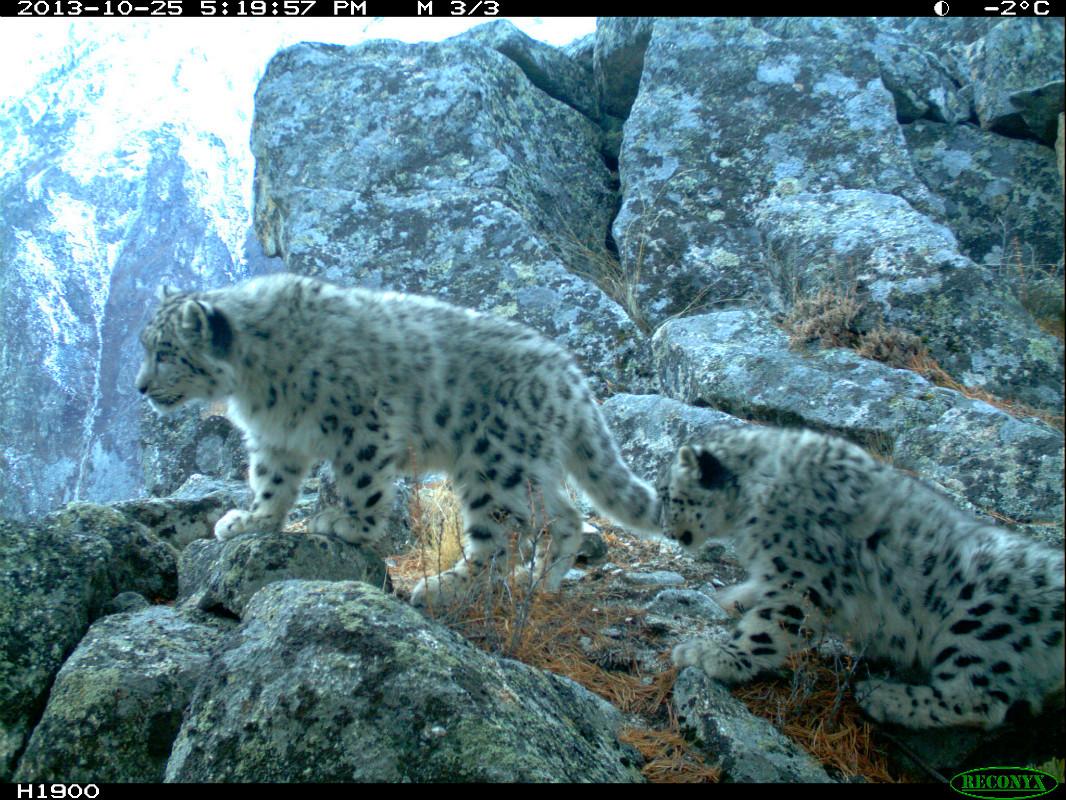The snow leopard, a Sochi Olympics symbol, is near extinction
Two young snow leopards are caught on camera last October by field cameras in the Argut River basin in Russia, along the border with Mongolia, China and Kazakhstan.
The Winter Olympics in Sochi, Russia are little more than a month away. The mascot for the games is the snow leopard, a symbol selected by the Russian people.
Vladimir Putin said the mascot was chosen because it's "strong, powerful, fast and beautiful." It's also close to extinction in Russia.
Wildlife biologists estimate that perhaps 40 snow leopards remain in Russia, in the Altai Republic, and 2,000 to 4,000 live in nearby Mongolia, China and Nepal.
"They are extremely elegant and agile animals, aided dramatically by that long tail that they use for balance as they leap over crags and down cliffs pursuing their prey,” said James Gibbs, a wildlife biologist at the State University of New York College of Environmental Science and Forestry in Syracuse. “They are, as Putin indicated, a great symbol of strength and persistence living in incredibly harsh environments.”
In recent years, the big cats have been pushed higher and higher up to the tops of treeless, rocky, barren mountaintops. They're fleeing poachers who covet their skins, which can sell for $20,000 to $30,000 in Beijing or Moscow. Poaching became a major problem when the region fell into disarray after the Soviet Union collapsed and there were few controls.
The prey of the snow leopard — ibex and mountain sheep — have also been over-hunted, forcing snow leopards to look for other animals to eat, often herded animals, which creates further conflicts between snow leopards and people.
Despite the bleak situation, Gibbs is optimistic for the future.
“Five years ago, I would’ve said it’s hopeless,” he said. “[But now], we are actually witnessing ways to control poaching and provide alternatives for these desperately poor local herders to make a living."
In recent years, a handful of snow leopards have begun re-populating Russia — from Kazakhstan, most likely. Gibbs credits his colleagues for the recent success: Sergei Spitsyn with Altaisky Zapovednik, Mikhail Paltsyn of WWF-Russia and Jen Castner of The Altai Project.
And with the snow leopard now acting as the official mascot of the Winter Games, Gibbs said the added publicity can only help.
“All the more attention to the plight of this creature is good. The challenge of course is then transferring and converting that goodwill and that attention into resources that actually get down to the level where they’re really needed to make a difference,” he said.
